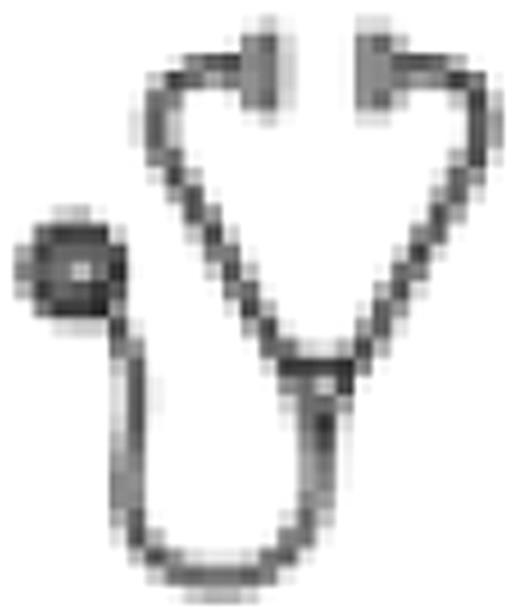Abstract
Abstract 3310
Lymphoma patients relapsing after allogeneic stem cell transplantation (alloSCT) have a dismal prognosis. Relapsed disease is often chemorefractory and few therapeutic options are available. Few reports have assessed the efficacy of donor lymphocyte infusions (DLI) for relapse treatment. We conducted a retrospective study to assess whether DLI may improve survival outcomes of relapsed patients as compared to salvage chemotherapy, and to explore the potential benefit of Rituximab as salvage treatment. We collected data of 146 consecutive patients with Hodgkin's (HL) and non-Hodgkin's (NHL) lymphoma allografted with reduced intensity conditioning in 2 Italian hematologic centres between 1999 and 2007. Patients relapsed after alloSCT were the target population of our study, and their treatment and survival outcomes were analyzed. Progression free (PFS) and overall survival (OS) were defined as the time from first to second relapse or death and the time from first relapse to death, and were analyzed by Kaplan-Meier method and log-rank test. Relapse incidence (RI) was defined as the time from first to second relapse considering non-relapse mortality as competing event, and it was analyzed by Cumulative Incidence method and Gray's test. Multivariate analysis was done with Cox method. Fifty-seven (39%) of all 146 patients relapsed at a median of 545 days, 48 of them (84%) were treated for relapse, 9 (16%) were not treated due to early death for progression (6) or infection (2) or response to cyclosporine withdrawal (1). Treated patients had a median age of 50 years (range 19-65), 18 (38%) were female, 12 (25%) had HL, 13 (27%) indolent and 23 (48%) aggressive NHL. Previous lines of chemotherapy were 3 (range 2-7). Twenty-four (50%) patients had undergone an autologous transplant (autoSCT). All patients were allografted from siblings (32, 67%) or from matched unrelated donors (16, 33%). Twenty-four (50%) had >1 comorbidity Sorror score at transplant. Twenty-four (50%) patients received DLI alone or with chemotherapy for relapse treatment, 24 (50%) received chemotherapy alone. Median DLI administered were 2 (range 1-5) with a median of 1×10 7CD3+ per DLI. Ten patients (21%) could not receive DLI because of GVHD (5), progressive disease (3), infection (1), donor's loss of eligibility (1). Seventeen patients (35%) were treated with Rituximab alone or combined with chemotherapy, 10 (21%) received both DLI and Rituximab. One- and 2- years OS (median 720 days) and PFS (median 269 days) were 61% and 50%, 39% and 30%, respectively. One- and 2-years RI were 45% and 65%. Age, sex, pre-transplant disease status, therapy lines, comorbidities, donor type, autoSCT did not influence OS nor PFS or RI. Patients with aggressive NHL had a worse PFS (p=0.01), a higher RI (p=0.01) and a trend to reduced OS (p=0.05). Patients treated with DLI had a better PFS than patients treated with salvage chemotherapy alone (1-year PFS 54% with DLI vs 24% without, p=0.005), a significantly reduced RI (1-year RI 38% with DLI vs 67% without, p=0.007), and a trend towards a better OS (1-year OS 79% with DLI vs 38% without, p=0.06). Rituximab treatment improved OS (1-year OS 82% with Rituximab, 50% without, p=0.009) but did not significantly impact PFS or RI. As compared to chemotherapy alone, patients treated with both DLI and Rituximab had better PFS (1-year PFS 60% vs 37%, p=0.04) and OS (1-year OS 90% vs 50%, p=0.006) and a trend to reduced RI (1-year 30% vs 58%, p=0.05). The multivariate analysis considered as covariates disease (HL vs indolent NHL vs aggressive NHL), age (<55 years vs older), comorbidities (<=1 vs >1), treatment with DLI (DLI vs no DLI) and Rituximab (Rituximab vs no Rituximab). In multivariate analysis DLI significantly improved PFS (HR=0.3, CI95%=0.18-0.85, p=0.02) and Rituximab improved OS (HR=0.2, CI95%=0.07-0.66, p=0.006). Treatment with DLI and Rituximab improved both PFS (HR=0.3, CI95%=0.1-0.8, p=0.02) and OS (HR=0.1, CI95%=0.02-0.5, p=0.005). Other covariates did not impact OS or PFS. In conclusion, patients with lymphoma who relapse after alloSCT may be treated with DLI, which may improve survival and reduce relapse incidence as compared to salvage chemotherapy. Relapse treatment with Rituximab may offer an OS benefit. Combined treatment with DLI and Rituximab may improve both PFS and OS of these patients, and may be the optimal salvage strategy. Prospective data are needed in order to confirm these results.
Patriarca:Janssen-Cilag: Speakers Bureau; Celgene: Speakers Bureau. Corradini:Celgene: Honoraria; Roche: Honoraria; Novartis: Honoraria, Speakers Bureau.

This icon denotes an abstract that is clinically relevant.
Author notes
Asterisk with author names denotes non-ASH members.

This feature is available to Subscribers Only
Sign In or Create an Account Close Modal